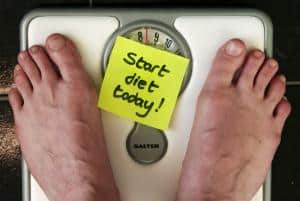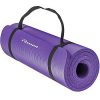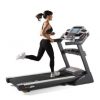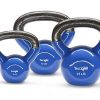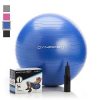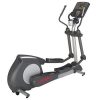Losing weight with the fasting diet requires commitment and focus. If you have ever tried any type of diet plan before then you understand that results do not come unless you are prepared to dedicate some time and energy to the outcome; losing weight and improving your health.
There is one thing that during my journey I have discovered to be true and that is that weight measurement on the scales is not always the best indication of my weight loss and health improvement.
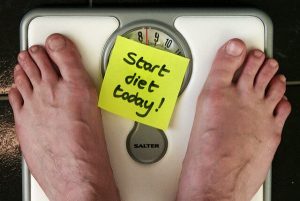
While weight is one way to measure success during your weight loss journey, it is really just the launching point. As you progress further along your weight loss journey you may encounter a plateau or may even think that you have gained weight; when in fact this is not the case at all.
You see the more weight that you lose, the more your body starts to convert your fat into muscle. And with the 5.2 diet, fasting helps the body burn fat stores rather than sugar.
What this means is that one week you may lose a few pounds on the scales, but then another week you jump on the scales again and are dismayed because the number staring back at you does not seem to reflect this.
You start off being so excited as you believe you have lost even more weight, your clothes feel looser and your body feels tighter and more toned, but that number on the scales has not moved further south, it’s sitting at the same number the same measurement as before.
If you’ve ever followed strict diet plans in the past then you may be familiar with trying to track your weight loss through using different forms of weight loss measurement. Anything from weighing yourself on your regular bathroom scales to taking measurements of your body around the waist, hips and thigh area using a tape measure and then doing some calculation to determine your BMI.
All these measurements and calculations can be overwhelming; almost enough for you to throw your hands up and proclaim that losing weight is just too hard!
But it doesn’t need to be, in fact, you don’t need to be a mathematician or engineer, there are very accurate and easy to use scales available that allow you to measure everything all in one place!
Not All Scales Are The Same
While a scale can’t measure your individual body parts like a tape measure can, they can measure your overall body fat percentage, telling you how much fat and how much muscle you are composed of.
And although the scales won’t measure how many inches you may have lost around your waist or your thighs this simple body fat percentage reading will still show you that your weight loss plan is working, and give you the numbers and measurements to keep going!
I’ve found that they give a truer indication of what is really going on beneath the surface, which is particularly important especially if your goal is not to look like a chiseled bikini model, but a healthier version of the current you.
All too often people give up on their diet or weight loss plan because the number on the scale doesn’t reflect the number they have in their mind or it doesn’t reflect the hard work and effort you have been dedicating to your weight loss goal.
Using ordinary bathroom scales just didn’t tell me enough information and I’d often find myself getting upset and getting down on myself; feeling like I had no improvement from my fasting diet efforts when in actual fact my overall health had improved, my body fat was down or my muscle percentage had increased.
These changes were an achievement. These positive changes were an acknowledgment that the dedication was worth it and that I needed to keep focused on achieving my health goals.
That being said, the number on the scale (your weight) is only one piece of your overall health puzzle. Just as there are a variety of ways to lose weight (diet, exercise, etc.) there are a plethora of ways to measure your progress when it comes to improving your health.
And, just as we’ve understood that weight loss is more effective when you take a holistic approach (i.e. having both a healthy diet, positive mindset, and an exercise plan) the same approach should be taken in how you view the progress of your weight loss.
While some believe you shouldn’t look at your scales every day, there are others who believe you should; and the more accurate your scale is – and the more information it can share – the more accurately you are able to track your progress, easily.
My Body Weight – What Does It Really Mean?

Scales that offer a measure of weight, body fat, muscle, and/or hydration can better depict the ‘whole’ picture of your health and weight loss overall. The idea is that not only will you have more information about your progress and why you may not be seeing changes that reflect fewer pounds, but you will also have a better understanding of what is going on in your body.
I personally took on the challenge of losing weight for my school reunion a number of years ago. Four months out from the big day I was 147 pounds. I am vertically challenged only 5’ tall, so even though the number on the scale may not seem bad to most, my BMI was over 30% (which is boarding on obese) I didn’t feel good and I didn’t feel attractive; which is not how I wanted to feel.
There were many times that I almost gave up, but through dedication, the fasting diet, some gentle exercise, and weekly weigh-ins with my scale, I was able to get down to 121 pounds. I went from a size 12 dress to a size 4.
There were several times I even gained weight, but from using my scale I saw that my body was converting fat into muscle – that the extra weight I was seeing was new muscle; not the addition of fat!
If I hadn’t had my scale to show me my muscle and body fat percentages I probably would have become discouraged and given up like I had many times before. I would have been so angry with myself and beat up on myself, but this time I had more information and rather than being discouraged I stayed true to my goal.
Scales – Are They a Necessary Tool For Weight Loss?
Many of us have different views about weighing ourselves using a scale, but when you have the right one at your disposal it really does become a necessary tool that can help you better understand what is going on beneath the surface. It helps you understand what is really happening on your weight loss journey?
Understanding your body fat and muscle percentage will certainly help you to stay dedicated to fasting 2 days each week following the fasting diet plan. It will help you see that there is more to the number on that scale and help you stay dedicated and focused on your goal, rather than feeling like you should be throwing in the towel.
With the right tools at your disposal, your weight loss journey can be a more pleasant experience overall and help you keep the weight off for the long-term!


